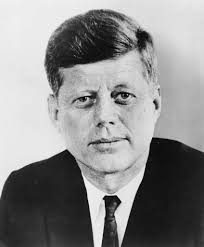Understanding the Legacy of JFK Kennedy

Introduction
John Fitzgerald Kennedy, known as JFK, remains one of the most influential figures in American history. Serving as the 35th President of the United States from January 1961 until his assassination in November 1963, Kennedy’s leadership during the Cold War, his innovative policies, and his untimely death have left an indelible mark on the nation and the world. In times of political division, understanding the legacy of JFK is more relevant than ever.
Major Events During Kennedy’s Presidency
Kennedy’s presidency was marked by several significant events that defined both his leadership style and his legacy. The Bay of Pigs Invasion in 1961, an ill-fated attempt to overthrow the Cuban government, tested Kennedy’s resolve and leadership. In contrast, he handled the Cuban Missile Crisis of 1962, widely regarded as one of the closest times the world came to nuclear war, with a mix of caution and decisiveness. His efforts to broker peace during this tense period showcased his diplomatic skills and commitment to avoiding conflict.
Domestically, Kennedy was a proponent of civil rights. He pushed for legislation that would later become the Civil Rights Act of 1964, aiming to eliminate racial segregation and discrimination. His advocacy for space exploration inspired a nation and led to the ambitious goal of landing a man on the moon, achieved in 1969, just six years after his famous speech at Rice University announcing the endeavor.
Assassination and its Impact
The assassination of JFK on November 22, 1963, in Dallas, Texas, shocked the world and plunged the United States into mourning. His death sparked numerous conspiracy theories and debates that continue to this day. The Warren Commission, established to investigate the assassination, concluded that a lone gunman, Lee Harvey Oswald, was responsible, but many Americans remain skeptical of this finding.
The Enduring Legacy of JFK Kennedy
JFK’s legacy continues to resonate in American culture and politics. His vision for a better world—embodied in his famous inaugural address, “Ask not what your country can do for you, ask what you can do for your country”—inspires generations. His presidency marked a turning point in America’s approach to both international relations and domestic policy, with a lasting impact on various movements, including civil rights and space exploration.
Conclusion
John F. Kennedy’s contributions to American society and his lasting influence on global politics remain relevant today. As discussions on leadership, civic responsibility, and the importance of engaging in the democratic process continue, there’s a renewed interest in understanding and commemorating JFK’s complex legacy. He serves as a reminder of the possibilities for change and the responsibilities of those in power, urging current and future leaders to strive toward a vision of progress.








